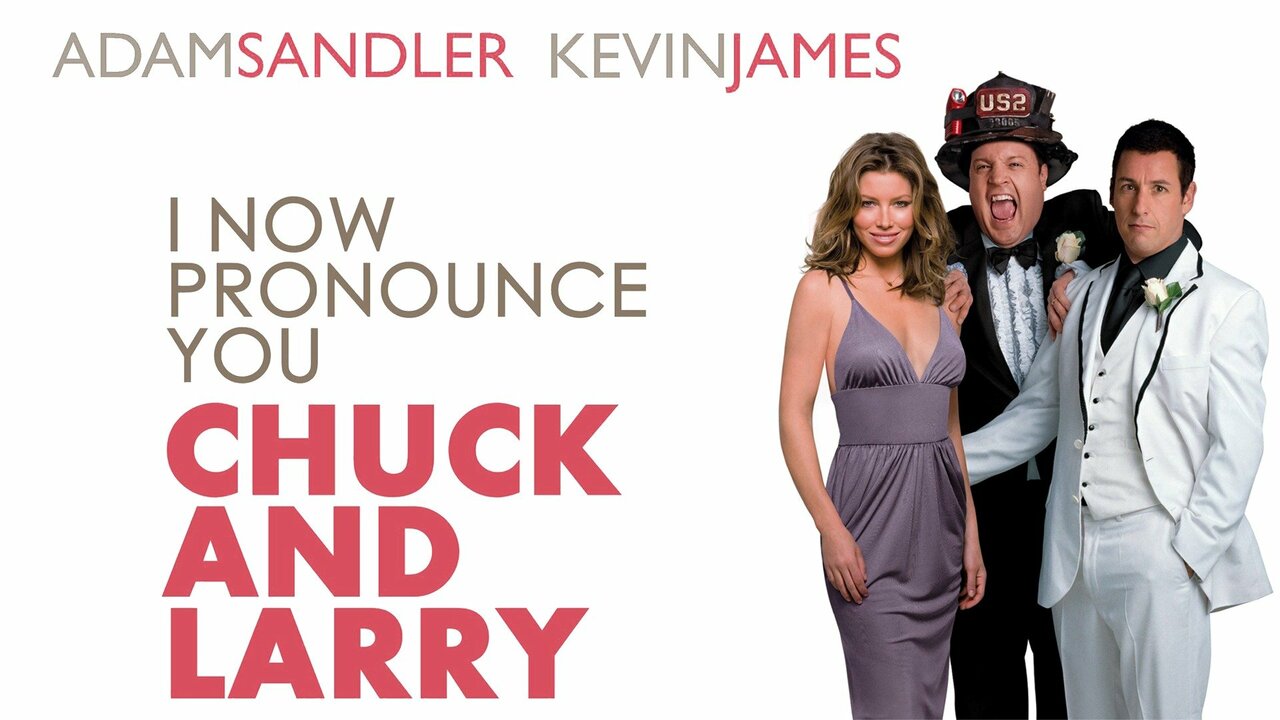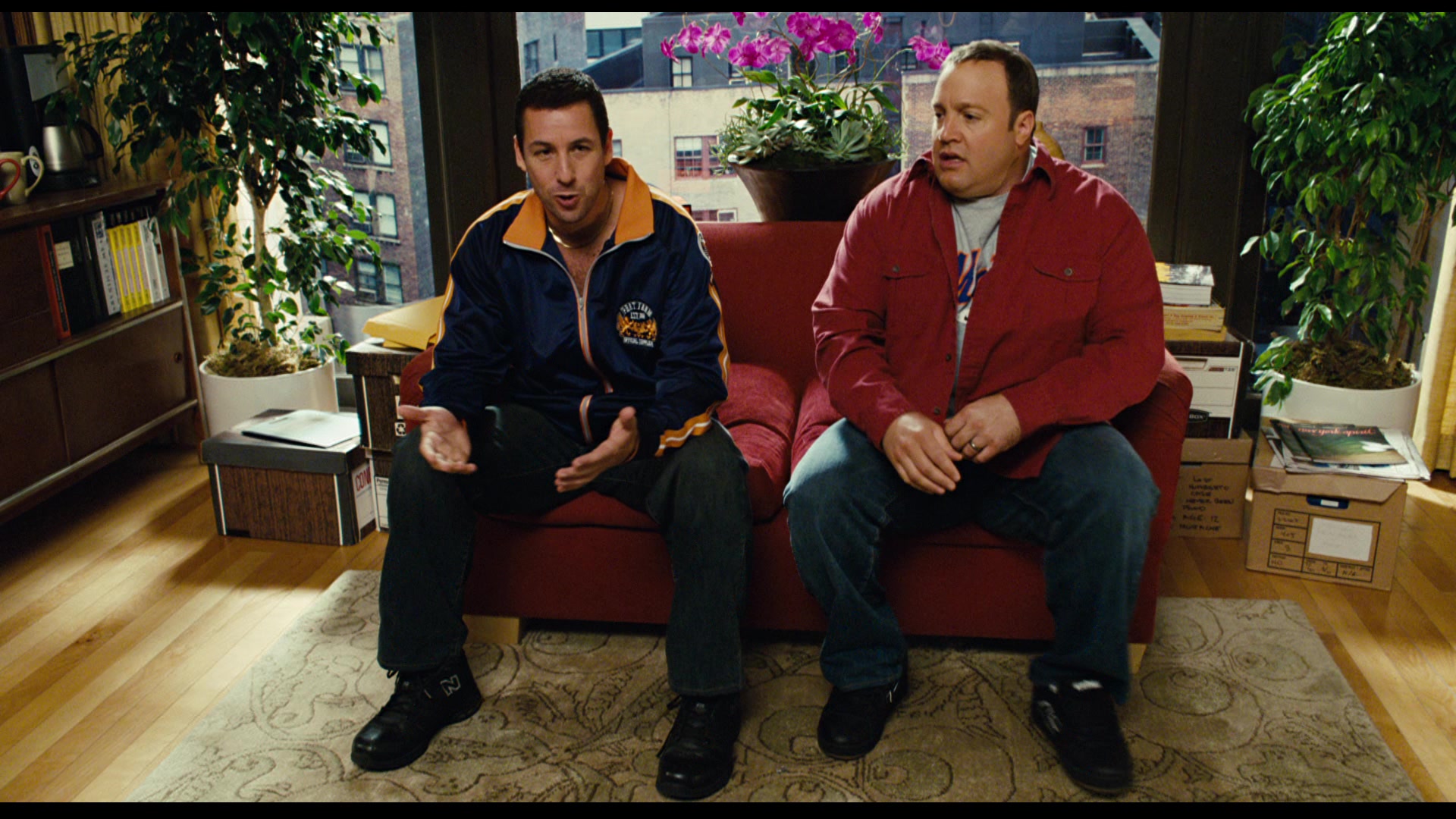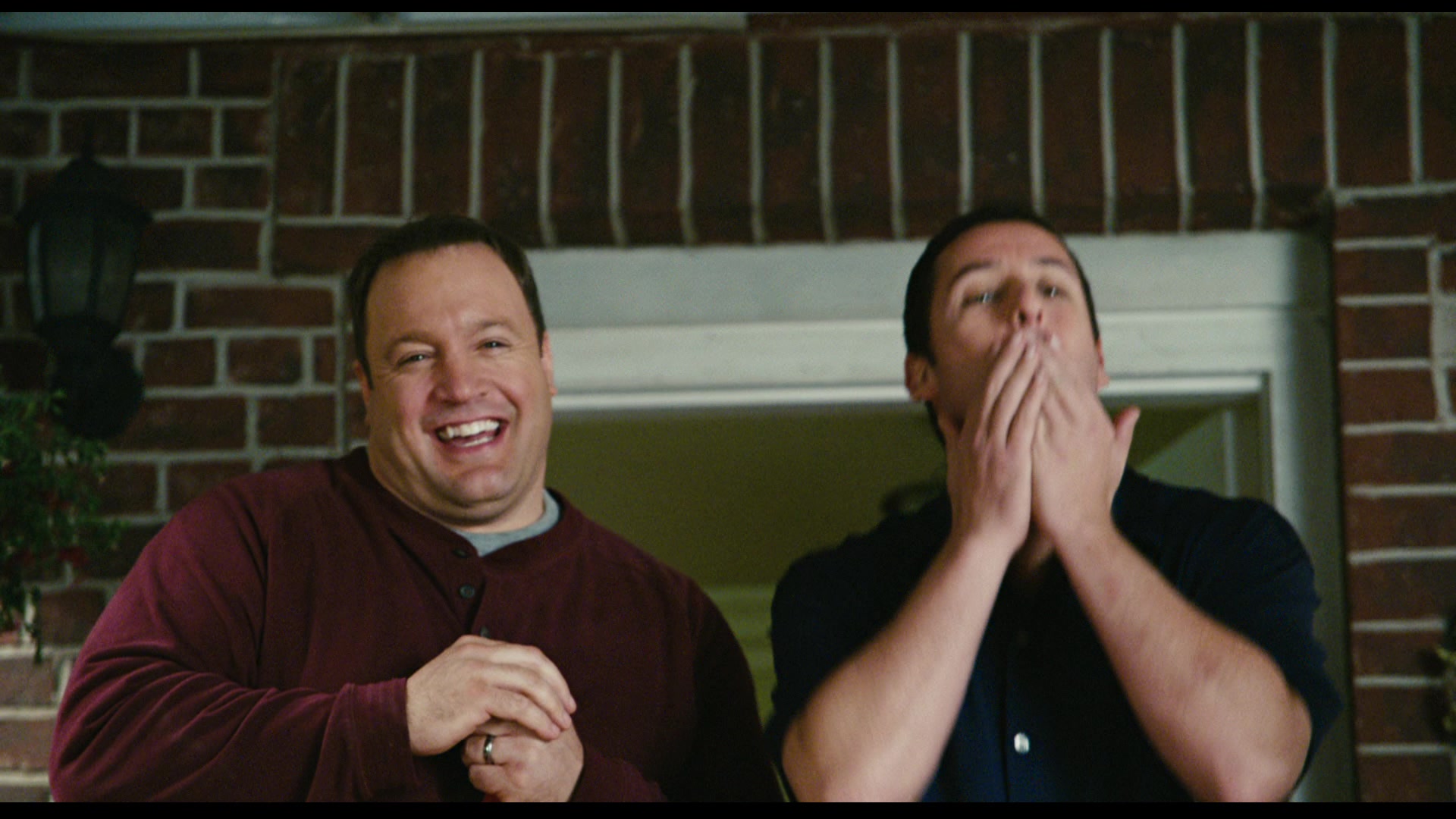Understanding "I Now Pronounce You Chuck And Larry Son": A Look At Family And Acceptance
Detail Author:
- Name : Verona Kerluke
- Username : medhurst.lenora
- Email : flueilwitz@hotmail.com
- Birthdate : 1986-12-05
- Address : 7560 Kamille Ridge Apt. 818 Port Jeanne, KY 18128-3509
- Phone : 419-625-9014
- Company : Greenfelder LLC
- Job : Copy Writer
- Bio : Reprehenderit ab aut sint voluptas porro quo ea. Eum quas id ut aut beatae dicta. Voluptates sunt consequatur ratione dolore molestias et.
Socials
facebook:
- url : https://facebook.com/mckenziev
- username : mckenziev
- bio : Ipsum provident minus temporibus velit alias reprehenderit quisquam.
- followers : 1407
- following : 739
instagram:
- url : https://instagram.com/vmckenzie
- username : vmckenzie
- bio : Minima qui quisquam alias velit. Maiores commodi modi exercitationem.
- followers : 1804
- following : 738
twitter:
- url : https://twitter.com/mckenziev
- username : mckenziev
- bio : Quo et vel dolores officiis placeat id nulla. Aliquam qui nisi atque minima sit. Dolorem nihil sit consequatur aut.
- followers : 5540
- following : 371
The film "I Now Pronounce You Chuck & Larry" really gives us a lot to think about, especially when it comes to family, what it means to be a father, and accepting people for who they are. This 2007 American buddy comedy, directed by Dennis Dugan, brings together Adam Sandler as Chuck and Kevin James as Larry, two Brooklyn firefighters whose lives take a very unexpected turn. You see, the story isn't just about their antics; it actually goes much deeper, exploring themes that are still very much a part of conversations today. It’s a movie that, in some respects, makes you laugh, but then it also makes you consider bigger ideas about how we treat each other and what love really looks like within a family.
At its heart, this movie is about a desperate situation that leads to a surprising journey for two best friends. Larry Valentine, a widower and a dedicated father, finds himself in a tight spot, needing to secure his children’s future. His quick-thinking solution involves his buddy, Chuck Levine, a ladies' man and fellow firefighter. Their plan? To pretend to be a gay couple, entering a fake domestic partnership. This premise, which seems like a setup for pure comedy, actually opens the door to some pretty heartfelt moments and, quite surprisingly, some real lessons about tolerance and understanding, especially when it comes to Larry’s son.
So, as we look closer at this film, we'll talk about the plot, the characters, and how it handles some very important subjects. We'll pay special attention to Larry's son, Eric, whose experiences play a very big part in the story's emotional core. It’s almost a little surprising how a comedy can touch on such significant topics, but this movie, in its own way, does just that. We'll explore how the film, even with its comedic approach, attempts to tackle ideas around identity and acceptance, which are, you know, still quite relevant for many families today.
Table of Contents
- The Unexpected Setup for Chuck and Larry
- Larry's Family and His Desperate Plan
- Eric, Larry's Son, and His Interests
- Facing Prejudice and Finding Strength
- Larry's Journey of Acceptance
- Chuck and Larry's Evolving Bond
- Broader Themes in the Film
- The Movie's Lasting Impression
- Frequently Asked Questions About I Now Pronounce You Chuck and Larry
The Unexpected Setup for Chuck and Larry
Chuck Levine and Larry Valentine are veteran FDNY firefighters, basically best friends and partners in Brooklyn. Chuck, played by Adam Sandler, is known as a womanizer, someone who enjoys the company of many different women. Larry, on the other hand, is a single father, a widower, who is trying to raise his two children. Their lives are pretty typical for firemen, full of camaraderie and danger, until a certain event makes Larry think about his kids' future in a way he hadn't before. This is, you know, where the story really gets going and where the whole premise of "I Now Pronounce You Chuck and Larry son" begins to unfold.
One day, Larry, who is a widower, realizes he forgot to change a very important detail on his pension benefits paperwork. This oversight means he can't name his children as beneficiaries, which is a big problem for a father who wants to make sure his kids are taken care of, no matter what. So, to procure his pension benefits and protect his family's financial security, Larry comes up with a very unusual idea. He asks his best friend, Chuck, to enter a fake domestic partnership with him. This is, in a way, the core of the film's conflict and humor, as two straight men suddenly have to pretend to be a gay couple.
The idea is that this arrangement will only be temporary, just until an agent suspects fraud, or until Larry can sort out his affairs. What they don't count on, however, is how deeply this charade will affect their lives, their relationships, and especially Larry's family. It's pretty clear that this fake partnership will lead to all sorts of funny situations, but also some very serious ones. So, the film, you know, sets up this comedic premise, but then uses it to explore some really important human feelings and experiences.
Larry's Family and His Desperate Plan
Larry Valentine is a father who truly cares about his kids. He's raising two children on his own: a tomboy daughter and a son, Eric, who has some interests that are, let's say, a little different from what you might expect from a firefighter's boy. Larry's world revolves around them, and his main worry is their well-being. This is why he's so desperate to secure his children's future, especially their financial stability, which is tied to his pension. It’s, you know, a pretty common parental concern, but Larry's solution is anything but ordinary.
The film makes it clear that Larry's motivation for the fake domestic partnership is purely for his kids. He's not doing it for himself, but because he feels a strong responsibility to provide for them. This deep love for his children is what drives him to ask Chuck for such an extreme favor. It’s a very personal decision, and it shows the lengths a parent might go to for their family. So, in a way, Larry's actions, even though they lead to a lot of comedic moments, are rooted in a very serious and heartfelt place.
This desperate plan, however, means that Larry and Chuck have to keep up appearances, not just in front of the pension agents, but also in their daily lives, which includes their firehouse colleagues and, crucially, Larry's own children. This added layer of deception creates all sorts of complications, and it really puts a spotlight on how Larry handles the situation, especially when it impacts his son. It’s, you know, a very tricky balancing act for him, trying to protect his kids while also maintaining this secret.
Eric, Larry's Son, and His Interests
Larry's son, Eric, is a very distinct character in the movie, and his storyline is, you know, quite central to the film's emotional impact. He is portrayed as effeminate, with a vested interest in Broadway and tap dancing. These interests are not typically what one might expect from the son of a gruff firefighter, and this difference sets him apart. His passion for the arts is shown very clearly, and it's a part of his personality that the film explores quite a bit.
Eric's unique interests also make him a target. In the film, his effeminate nature leads to him being harassed in school by a homophobic bully. This bullying incident is a very difficult moment, not just for Eric, but also for Larry, who has to watch his son suffer. It’s a scene that, in some respects, highlights the prejudice that people who are perceived as different can face. The film uses this situation to show the challenges Eric deals with just by being himself.
However, Eric is not just a victim. During the ordeal with the bully, he surprises everybody by easily winning a fight with his abuser. This moment is pretty powerful, showing that Eric has an inner strength and resilience that might not be obvious at first glance. It’s a very defining moment for his character, proving that appearances can be deceiving. So, you know, Eric's story is not just about being different, but also about finding his own power and standing up for himself.
Facing Prejudice and Finding Strength
The bullying Eric experiences in school is a direct result of the prejudice he faces because of his perceived identity. This part of the story, you know, really brings home the idea of how hurtful and damaging homophobia can be, even if it's directed at someone who isn't actually gay, but just seems that way. The film, in a way, uses Eric's situation to show the broader impact of narrow-mindedness on young people. It's a pretty tough thing for a child to go through, being picked on just for being who they are.
When Eric surprises everyone by easily winning the fight against his bully, it's a moment of triumph. This scene is quite important because it flips the script on what people might expect. It shows that strength doesn't always look the way we think it does. Eric, despite his gentle interests, has a core of resilience that allows him to defend himself. This act of self-defense is, you know, a very strong statement about his character and his refusal to be a victim.
This incident also has a profound effect on Larry. Seeing his son stand up for himself, and realizing the kind of challenges Eric faces, begins to shift Larry's own perspective. It's a catalyst for him to start thinking differently about what's truly important and how he views his son. So, in some respects, Eric's fight isn't just about him; it's also about Larry's journey towards a deeper acceptance and understanding, which is, you know, pretty significant for the story.
Larry's Journey of Acceptance
Larry's initial reaction to his son's interests, particularly his love for Broadway and tap dancing, is shown to be a bit uncomfortable. He is, after all, a gruff firefighter, and these hobbies don't quite fit into the traditional masculine image that might be expected. However, as the film progresses, and especially after the bullying incident, Larry begins a significant personal transformation. He starts to realize that it’s perfectly fine if his son might be gay, or if he simply has different interests. This is, you know, a very big step for him as a parent.
The movie portrays Larry's evolving feelings as he comes to terms with Eric's identity. His love for his son is always there, but his understanding and acceptance of Eric's unique qualities grow over time. This journey is, in a way, a very human one, as many parents grapple with understanding and embracing their children's true selves. It’s not always an easy path, but Larry's commitment to his son pushes him to overcome his own preconceived notions. So, you know, his character really develops quite a bit throughout the film.
During the ordeal of the fake domestic partnership, and the challenges that come with it, the previously homophobic pair, Chuck and Larry, come to a deeper understanding. Larry, in particular, begins to shed his earlier discomfort and truly embrace his son for who he is. This change in Larry is a very powerful part of the story, showing that love and acceptance can grow even in unexpected circumstances. It’s pretty clear that his son’s happiness and well-being become his absolute priority, which is, you know, what any good parent would want.
Chuck and Larry's Evolving Bond
The relationship between Chuck and Larry is, you know, the backbone of the entire film. They start as best friends and firefighting partners, but their fake domestic partnership forces them into situations that test their friendship in ways they never imagined. Chuck, initially a womanizer, and Larry, the responsible widower, have to learn to navigate a very different kind of public persona. This shared experience, in a way, pushes them both to grow and see the world from a different viewpoint.
During the ordeal of pretending to be a gay couple, both Chuck and Larry, who previously held some homophobic views, begin to change their minds. They experience firsthand the prejudice and judgment that gay couples can face, and this experience really opens their eyes. It's almost a little ironic that by pretending to be gay, they become more understanding and accepting of actual gay people. This transformation is, you know, a pretty significant part of the movie's message.
Their bond becomes stronger as they rely on each other to keep up the charade and deal with the consequences. The film shows how their friendship deepens, moving beyond just being colleagues to something more profound, built on mutual support and a shared, very unusual, secret. So, in some respects, their journey together is about more than just avoiding fraud; it's about a friendship evolving into something truly special and, you know, pretty resilient.
Broader Themes in the Film
Beyond the immediate plot of the fake domestic partnership and Larry's son, "I Now Pronounce You Chuck & Larry" touches on several broader themes. One very clear theme is the idea of family, what it means, and how far people will go to protect it. Larry's actions are driven entirely by his devotion to his children, which is, you know, a universal concept. The film shows that family isn't just about blood, but also about the people you choose to support and protect.
Another important theme is acceptance, particularly around sexual orientation and identity. While the movie uses humor, sometimes controversially, to explore this, it does, in its own way, push for greater understanding. The characters, especially Chuck and Larry, are forced to confront their own biases and prejudices. This confrontation leads to a shift in their perspectives, showing that people can change and grow when faced with new experiences. So, in a way, the film tries to promote a message of tolerance, even if it takes a roundabout path to get there.
The film also looks at the concept of heroism and what it truly means to be a "man." Chuck and Larry are firefighters, traditionally seen as heroes, but their journey shows that true bravery can also be about emotional courage, acceptance, and standing up for what's right, even if it's uncomfortable. Ving Rhames, playing a fellow firefighter who initially seems defined by his gruff machismo, comes out as gay in a legitimately touching scene, further challenging stereotypes. This moment, you know, adds another layer to the film's exploration of identity and what it means to be strong.
The Movie's Lasting Impression
While "I Now Pronounce You Chuck & Larry" has certainly been a hard film to defend a lot of the time due to its comedic approach to sensitive subjects, it does leave a lasting impression on some viewers, especially concerning its themes of family and acceptance. The story of Larry's son, Eric, and Larry's evolving understanding of him, is, you know, a very poignant part of the movie. It shows how a parent's love can overcome personal biases and lead to greater empathy.
The film, despite its flaws, attempts to spark conversations about prejudice and the importance of supporting those you care about, regardless of their identity. It's a comedy that, in some respects, tries to have a heart, showing that even the most unlikely people can learn and grow. The journey of Chuck and Larry, from their initial deception to their eventual acceptance of themselves and others, is, you know, a central part of what the movie tries to communicate.
Even today, topics around identity, family support, and challenging stereotypes remain very relevant. "I Now Pronounce You Chuck & Larry," while a product of its time, still offers a glimpse into how popular culture has, in a way, tried to tackle these subjects. It reminds us that understanding and compassion are, you know, always important, whether it's within our own families or in the wider community. To learn more about supporting diverse families on our site, and for more movie insights, you can also check out this page about the film's deeper meanings.
Frequently Asked Questions About I Now Pronounce You Chuck and Larry
What is the premise of "I Now Pronounce You Chuck and Larry"?
The movie is about two straight, single Brooklyn firefighters, Chuck Levine (Adam Sandler) and Larry Valentine (Kevin James), who pretend to be a gay couple. Larry, a widower, needs to secure his children's pension benefits and asks Chuck to enter a fake domestic partnership with him. It's a very unusual setup, you know, for a comedy, but it leads to all sorts of situations.
What happens with Larry's son, Eric, in the movie?
Larry's son, Eric, is portrayed as effeminate and has a strong interest in Broadway and tap dancing. He is harassed by a homophobic bully at school but surprises everyone by easily winning a fight against his abuser. This experience, you know, helps Larry realize that it's fine if his son might be gay, leading to a significant moment of parental acceptance.
Does "I Now Pronounce You Chuck and Larry" promote acceptance?
During the ordeal of pretending to be a gay couple, the previously homophobic Chuck and Larry come to a deeper understanding and acceptance of the LGBTQ+ community. The film, in a way, uses their journey to show how experiencing prejudice firsthand can change people's perspectives, so, you know, it does try to promote acceptance, even with its comedic tone. You can find more details about the movie on its IMDb page.


